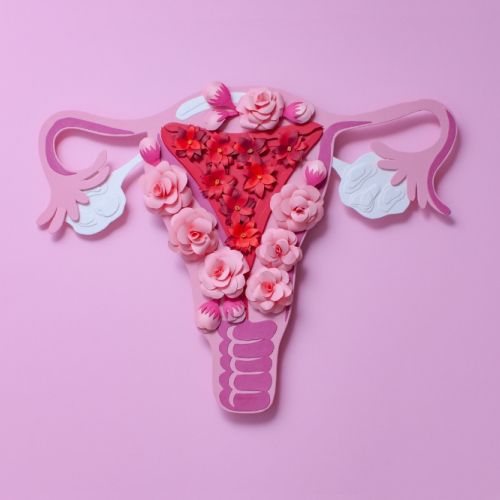Healthy Habits That May Support Fertility

If you’re eager to add to your family, a few lifestyle changes may support your attempts. Many factors figure into infertility, including some that are out of your control. But, certain healthy habits can help make your chance of conceiving more likely.
When you combine these healthy habits with the expert guidance and treatments provided by our team at California Center for Reproductive Health, you support your fertility and your ability to get pregnant.
Why lifestyle and healthy habits help improve fertility
Your hormone levels respond to your lifestyle. Not prioritizing sleep, being under stress, working long hours, and eating poorly can all negatively affect your fertility. Healthy habits can promote a more relaxed state, which means more balanced hormones and potentially easier conception.
A healthy, wholesome diet
A generally healthy diet includes whole grains, lean proteins, and dairy. Make that dairy full-fat, as research shows that consuming whole-milk products may discourage anovulation (the failure to release an egg each month.) Women who drank 1 cup of whole milk daily cut their risk of anovulation by more than half.
Prioritizing antioxidants from colorful, fresh fruits and vegetables and healthy fats from nuts, fatty fish, and avocados also optimizes your body.
Antioxidants help reduce inflammation caused by free radicals, which harm sperm and eggs. Healthy fats, particularly omega-3s, also reduce inflammation and protect the integrity of eggs and sperm.
You also benefit from consuming foods rich in folic acid, a B vitamin that helps protect a growing baby’s spine and brain. Leafy greens, fruits, and dried beans are good sources.
If you have polycystic ovary syndrome (PCOS) that’s causing problems with ovulation, cut back on your carbohydrate intake. Eat 45% or fewer of your calories from foods like rice, bread, and sugars. Managing your carbs when you have PCOS helps you maintain a healthy weight, encourages fat loss, reduces insulin levels, and improves menstrual regularity.
Maintain a healthy weight because being overweight or underweight can negatively affect fertility.
As far as alcohol, an occasional glass of wine is fine, but keep alcohol intake at a moderate level.
Prioritize sleep
Insufficient sleep can negatively affect fertility. Aim for a consistent bedtime and wake-up time that allow you to get about 8 hours of slumber per night. Adopt healthy sleep hygiene rituals such as:
- A bedtime ritual to help you wind down
- Minimal screen time before bed
- A cool, dark room
When you get proper sleep, you balance your circadian rhythms.
Stay physically active
Moving your body keeps it healthy. A daily exercise routine helps reduce stress and strengthens your muscles. Exercising too much, like several hours per day or training for a long endurance event, can interfere with fertility. Talk to us about what is a reasonable level for you.
Quit smoking
It should go without saying that if you’re trying to conceive, quit the tobacco. We can help.
If you still struggle to conceive even when following a healthy lifestyle, don’t hesitate to reach out to our office. We offer some of the most cutting-edge fertility treatments to help you expand your family.
Call one of our California Center for Reproductive Health offices in Encino, Valencia, or West Hollywood, or reach out via this website. Our doctors and staff can offer guidance about adopting these healthy habits and help you achieve your goal of a healthy pregnancy.
Eliran Mor, MD
Reproductive Endocrinologist located in Encino, Valencia & West Hollywood, CA
FAQ
What does a reproductive endocrinologist and infertility specialist do?
Reproductive endocrinology and Infertility is a sub-specialty of Obstetrics and Gynecology. In addition to managing medical and surgical treatment of disorders of the female reproductive tract, reproductive endocrinologist and infertility (REI) specialists undergo additional years of training to provide fertility treatments using assisted reproductive technology (ART) such as in vitro fertilization.
Reproductive endocrinologists receive board certification by the American Board of Obstetrics and Gynecology in both Obstetrics and Gynecology and Reproductive Endocrinology and Infertility.
When should I see an REI specialist?
In general, patients should consider consulting with an REI specialist after one year of trying unsuccessfully to achieve pregnancy. The chance of conceiving every month is around 20%, therefore after a full year of trying approximately 15% of couples will still not have achieved a pregnancy.
However, if a woman is over the age of 35 it would be reasonable to see a fertility specialist earlier, typically after 6 months of trying.
Other candidates to seek earlier treatment are women who have irregular menses, endometriosis, fibroids, polycystic ovary syndrome (PCOS), women who have had 2 or more miscarriages, or problems with the fallopian tubes (prior ectopic pregnancy).
What are the reasons we are having trouble conceiving?
Approximately 1/3 of the time cause for infertility is a female factor, 1/3 of the time a male factor, and the remaining 1/3 a couples’ factor.
At CCRH, we emphasize the importance of establishing a correct diagnosis. Both partners undergo a comprehensive evaluation including a medical history and physical exam.
Furthremore, the woman’s ovarian reserve is assessed with a pelvic ultrasound and a hormonal profile. A hysterosalpingogram (HSG) will confirm fallopian tube patency and the uterine cavity is free of intracavitary lesions. A semen analysis is also obtained to evaluate for concentration, motility, and morphology of the sperm.
Additional work up is then individualized to direct the best possible treatment option for each couple.
What is IVF? What is the process like?
In vitro fertilization (IVF) is the process that involves fertilization of an egg outside of a woman’s body.
The process starts with fertility drugs prescribed to help stimulate egg development. In your natural cycle, your body is only able to grow one dominant egg, but with stimulation medication we can recruit multiple eggs to continue to grow. After about 8-10 days of stimulation, the eggs are surgically retrieved and then fertilized with sperm in a specialized laboratory. Fertilized eggs are then cultured under a strictly controlled environment within specialized incubators in the IVF laboratory for 3-5 days while they develop as embryos. Finally, embryos (or an embryo) are transferred into the uterine cavity for implantation.
Should I have IVF?
Before deciding if IVF is the right choice, it’s important to sit down with an REI specialist to discuss available treatment options. For some people, other methods such as fertility drugs, intrauterine insemination (IUI) may be the best first choice treatment. At CCRH, we believe each individual couple is unique and not everyone needs IVF.
Is the IVF procedure painful?
While not painful, the fertility medications may some side effects including headaches, hot flashes, mood swings, and bloating. The injection sites may also bruise.
Will IVF guarantee a baby?
Unfortunately, no. Many people think once they start IVF it’s a matter of time that they will be pregnant and have a baby. But according to national statistics per the Society of Assisted Reproduction (SART), on average 40% of assisted reproduction cycles achieve live births in women under age 35. The chances of success then continue to decrease with advancing age.
At CCRH, we employ only evidence-based interventions to ensure patient safety and optimal outcome. While we cannot guarantee a baby, we guarantee that you will receive the best, most advanced, personalized care to help you maximize your chance of a baby.
What is the success rate for IVF?
The average IVF success rate (success measured in live birth rate) using one’s own eggs begins to drop around age 35 and then rapidly after age 40. This is due to the decline in egg quantity and egg quality as a woman ages.
Our clinic’s success rate consistently beats the national average year after year.
Do insurance plans cover infertility treatment? How much does IVF cost?
Individual insurance plans often do not have any coverage for infertility treatments. If you have a group plan, you can call members services to see if they have coverage for infertility (including consultation/workup and IVF).
After your consultation with our REI specialist, one of our dedicated account managers with sit with you to go over the cost of treatment.




